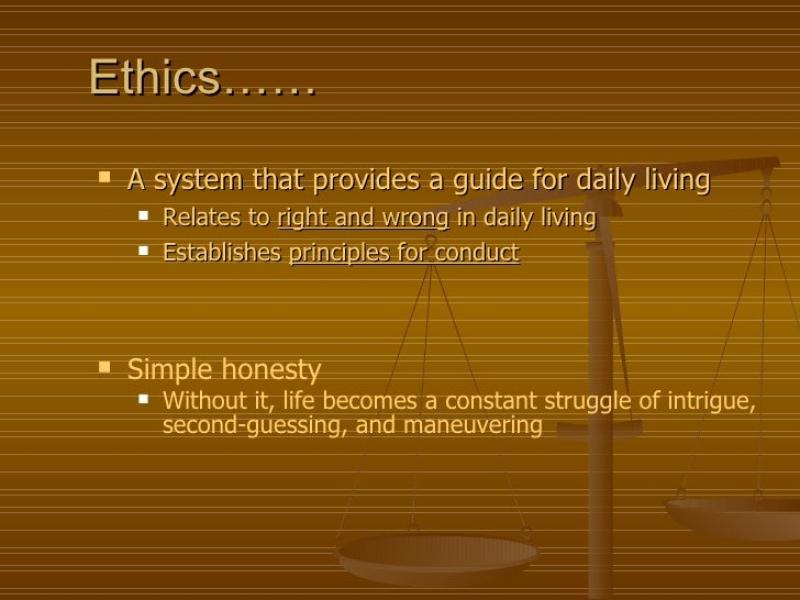What is class in ethics?
An ethics class, often referred to as a course in ethics, is an educational program that explores the principles, theories, and concepts related to ethics—the branch of philosophy that deals with moral principles and values governing human behavior. The curriculum and scope of an ethics class can vary depending on the level of education (e.g., high school, college, or graduate level) and the specific focus of the course. Below are some general components you might encounter in an ethics class:
Introduction to Ethics:
- Overview of ethical theories and approaches, such as consequentialism, deontology, virtue ethics, and relativism.
- Discussion of key philosophical figures and their contributions to ethical thought.
Moral Reasoning:
- Development of critical thinking skills in ethical decision-making.
- Examination of logical reasoning, ethical dilemmas, and ethical problem-solving.
Applied Ethics:
- Exploration of ethics in various practical contexts, such as business ethics, medical ethics, environmental ethics, and technology ethics.
- Case studies to analyze real-world ethical challenges and dilemmas.
Ethical Issues in Society:
- Examination of ethical issues in contemporary society, including social justice, human rights, and cultural diversity.
- Discussion of how ethical principles apply to social and political issues.
Professional Ethics:
- Focus on ethical standards and conduct within specific professions, such as medicine, law, engineering, and business.
- Understanding ethical responsibilities in the workplace.
Ethics in the Digital Age:
- Exploration of ethical considerations in the use of technology, social media, and data privacy.
- Discussions on the impact of emerging technologies on society.
Bioethics and Medical Ethics:
- Examination of ethical issues in healthcare, including topics like euthanasia, genetic engineering, and organ transplantation.
- Consideration of the doctor-patient relationship and informed consent.
Environmental Ethics:
- Exploration of ethical considerations related to environmental conservation, sustainability, and the human impact on the planet.
Metaethics:
- Study of foundational questions about ethics, such as the nature of morality, the meaning of ethical language, and the concept of moral realism.
Ethics and Religion:
- Discussion of the relationship between ethics and religious beliefs.
- Examination of moral principles in various religious traditions.
Ethical Leadership:
- Exploration of leadership principles grounded in ethical values.
- Consideration of the role of ethics in decision-making for leaders.
Cultural and Global Perspectives:
- Examination of ethical perspectives across different cultures and regions.
- Analysis of global ethical challenges and the importance of cross-cultural understanding.
The goal of an ethics class is to engage students in thoughtful reflection on moral principles, encourage ethical reasoning, and foster an understanding of how ethical considerations apply to various aspects of life. The scope and content of the class may be adapted to the specific educational level and goals of the institution offering the course.
What constitutes a typical ethics class in terms of structure and content?
The structure and content of a typical ethics class can vary depending on the level of education, academic discipline, and specific focus of the course. However, some general themes and approaches are common across many ethics courses:
Structure:
- Introduction to Ethics: The course often begins by defining ethics, exploring its different branches (e.g., normative ethics, metaethics) and introducing key concepts like moral reasoning, values, and decision-making frameworks.
- Core Ethical Theories: Students are then introduced to major ethical theories, such as utilitarianism, deontology, virtue ethics, and care ethics. Each theory is examined in depth, discussing its core principles, strengths, weaknesses, and applications to various ethical dilemmas.
- Case Studies and Application: The course typically incorporates case studies and scenarios from real-world situations, across diverse fields like business, medicine, politics, technology, and personal life. Students analyze these scenarios through the lens of different ethical theories, applying their knowledge to practical decision-making.
- Critical Thinking and Discussion: A strong emphasis is placed on critical thinking and discussion. Students are encouraged to question assumptions, analyze arguments, and engage in respectful dialogue about complex ethical issues.
- Ethical Frameworks and Skills: The course often equips students with frameworks for ethical decision-making, such as ethical decision-making models and critical thinking tools. They learn to identify and analyze ethical dilemmas, consider stakeholder perspectives, and make informed choices based on ethical principles.
Content:
- Normative Ethics: This branch focuses on determining what is right and wrong, exploring different moral theories like utilitarianism, deontology, virtue ethics, and care ethics.
- Metaethics: This branch examines the nature of moral judgments, questioning the meaning and validity of ethical concepts like "goodness," "rightness," and "obligation."
- Applied Ethics: This branch applies ethical theories to specific fields and situations, such as business ethics, medical ethics, environmental ethics, and political ethics.
- Ethical Reasoning and Decision-Making: Students learn various frameworks and models for ethical decision-making, equipping them with tools to analyze situations, identify stakeholders, weigh options, and make informed choices based on ethical principles.
- Contemporary Ethical Issues: The course often explores current ethical controversies and debates, such as artificial intelligence, climate change, bioethics, and social justice issues.
Additional Features:
- Guest Speakers: Some courses may invite guest speakers from diverse fields to share their experiences and perspectives on ethical challenges in their work.
- Role-Playing and Simulations: Interactive activities like role-playing and simulations can help students experience ethical dilemmas firsthand and practice applying their knowledge to real-world scenarios.
- Service Learning and Community Engagement: Some courses incorporate service learning or community engagement projects, allowing students to apply their ethical understanding to practical situations and contribute to positive change.
Overall, a typical ethics class aims to equip students with the knowledge, skills, and critical thinking abilities to navigate complex moral challenges, make informed decisions, and act ethically in their personal and professional lives.
Remember, this is just a general overview, and the specific structure and content of your ethics class may vary. It's always best to consult the course syllabus or contact your instructor for more details.












